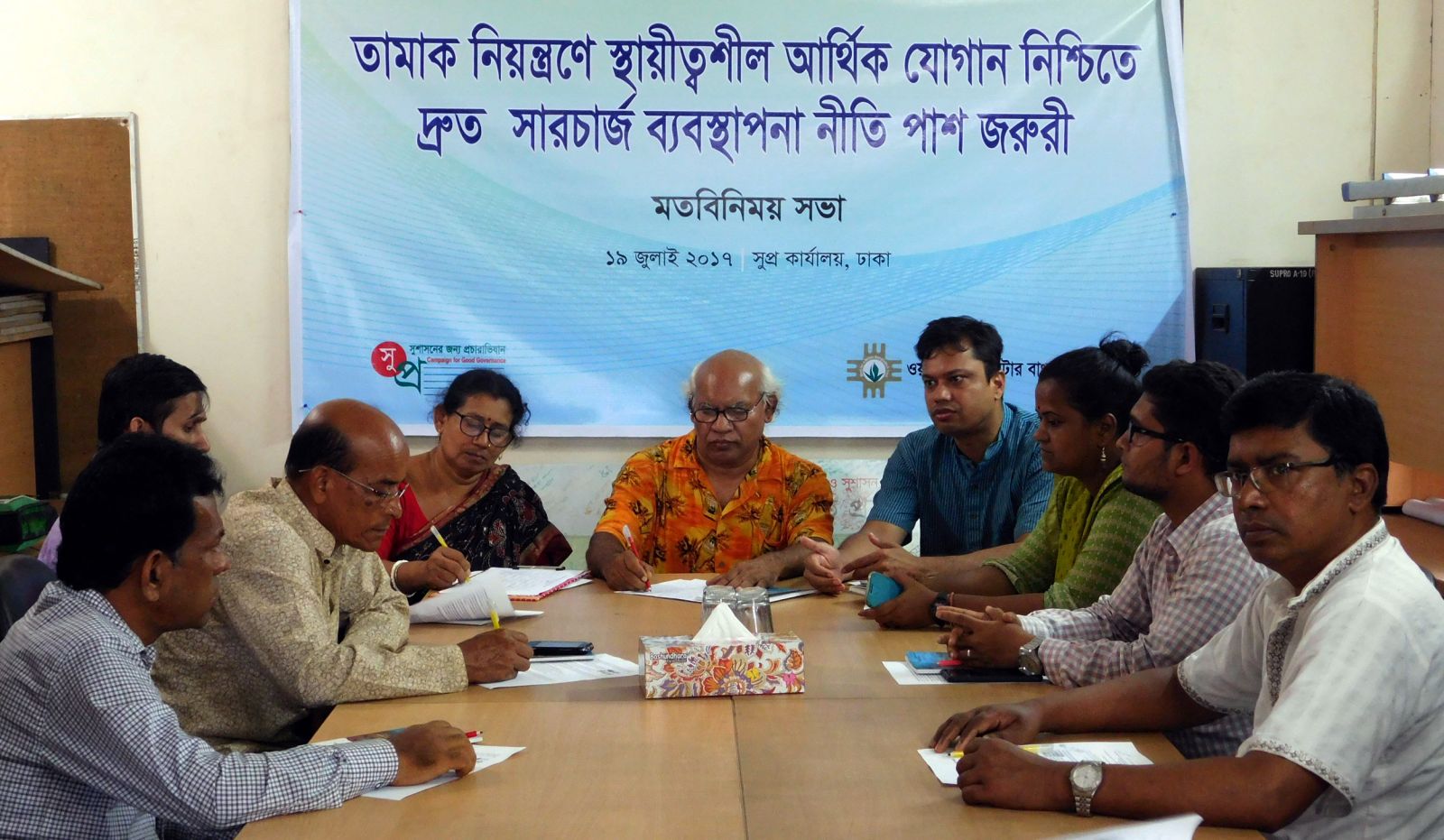

The program was presided by Harunur Rashid, president of SUPRO. Aminul Islam Sujon, Spoke person of Bangladesh Anti-Tobacco Alliance (BATA); Md. Mahbub Morshed, Monju Rani Pramanik, Vice-chairman of SUPRO; Executive Director of Dorpon and Treasurer of SUPRO; Syeda Anonna Rahman, Program Manager of WBB Trust spoke in the program.
Speakers said, ‘Opportunity seekers and profiteer tobacco industry interfere in the tobacco control activities in many ways. Which is barrier to good governance. 1% surcharge on tobacco products is a huge opportunity of finance for disease prevention. The National Tobacco Control Cell of the Ministry of Health and Family Welfare started work on Health Development Surcharge Management Policy in early 2016. As the policy is not finalized yet, still the benefits of money received as surcharges cannot not get. So it is important to pass this policy immediately. In the process of formulating policies for tobacco control, it's time to take strong measures to stop tobacco industries in which areas they are creating obstruction in good governance through immoral intervention.
Among others, representatives from ACLAB, AID foundation, Solidarity, Pabna progati Sangstha, Prodesh were present.
